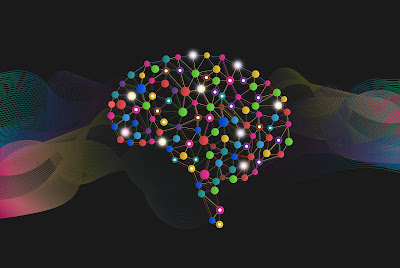Neurogenesis: Unleashing the Power of Brain Renewal
Neurogenesis: Unleashing the Power of Brain Renewal
In the early 20th century, the prevailing belief among
scientists was that the adult brain was a static and immutable organ, with no
capacity for generating new neurons. However, until the 1990s, with the
advances in technology and development of novel techniques, we know that the
human brain is a remarkable organ that continuously adapts and evolves
throughout our lives.
The process of generating new neurons, known as
neurogenesis, plays a vital role in brain plasticity, learning, memory, and
overall cognitive function. In this article, we will explore the fascinating
world of neurogenesis, its mechanisms, and the factors that influence it.
What is Neurogenesis?
Neurogenesis refers to the process of generation of new neurons. It occurs primarily in two regions of the brain: the subventricular zone (SVZ) and the hippocampus. The SVZ is located near the lateral ventricles. It generates neurons migrating to the olfactory bulb, which contributes to the sense of smell. In the hippocampus, the production of new neurons was found to be crucial for learning and memory (Ming & Song, 2011).
Process of Neurogenesis
Neurogenesis involves several intricate steps. It begins with the proliferation of neural stem cells, which are undifferentiated cells capable of self-renewal. These stem cells divide and give rise to progenitor cells that further differentiate into neurons, astrocytes, or oligodendrocytes (Ming & Song, 2011).
The process of neurogenesis is regulated by various molecular signals, growth factors, and environmental factors. Brain-derived neurotrophic factor (BDNF) is one of the key modulators that promotes the survival and maturation of newborn neurons. Studies found that exercise can stimulate BDNF production, and thereby enhancing neurogenesis (Miranda et al., 2019).
Neurogenesis impacts on Learning and Memory?
Neurogenesis has been suggested to have a strong link to the learning and memory processes. Studies showed that impairments in neurogenesis can lead to cognitive deficits, while enhanced neurogenesis improves cognitive performance. The birth of new neurons in the hippocampus provides a constant supply of fresh cells that integrate into existing neural circuits, contributing to the formation and retrieval of memories.
Researchers have conducted experiments using animal models
showing the relationship between neurogenesis and memory. Those study showed that inhibiting
neurogenesis led to a decline in the ability to form new memories (Dupret et
al., 2008), while enhancing neurogenesis through environmental enrichment
improved the performance of learning and memory tasks (Nilsson et al., 1999).
Stress, Aging, and Neurogenesis
Stress and aging can significantly impact neurogenesis. Chronic stress has been found to inhibit neurogenesis (Schoenfeld & Gould, 2012). Additionally, aging also affects neurogenesis. As we grow older, the rate of neurogenesis gradually decreases (Kempermann, 2015). Conversely, as mentioned previously, physical exercise can enhance neurogenesis, synaptic plasticity and learning (Nilsson et al., 1999, van Praag et al., 1999), which suggests that engaging in physical activities could be a key to maintain a good brain health.
Therapeutic Implications of Neurogenesis and the Challenges
The discovery of neurogenesis has opened up new avenues for potential therapeutic interventions. Scientists are investigating ways to harness the power of neurogenesis to treat different neuropathological conditions such as stroke, depression. Parkinson's disease and Alzheimer's disease (Rahman et al., 2021, Hanson et al., 2011, Geraerts et al., 2007, Sung et al., 2020).
The approach of targeting neurogenesis to treat neurological
diseases still faces numerous challenges. Delivering therapeutic agents or
interventions to stimulate neurogenesis in specific brain regions can be
particularly challenging due to the need to overcome the blood-brain barrier
and ensure precise targeting of desired locations. Moreover, promoting
neurogenesis may carry unintended consequences. Uncontrolled or excessive
neurogenesis could potentially result in abnormal neuronal growth, formation of
tumors, or other detrimental effects on brain function. Additionally, while
preclinical studies have shown promise for neurogenesis-based therapies in
animal models, translating these findings to human patients is a complex task
that requires careful consideration and understanding of the differences between
species.
Take-home Messages
Neurogenesis represents a fascinating aspect of brain
biology, highlighting the brain's remarkable ability to adapt and rejuvenate
itself. Understanding the mechanisms and factors that influence neurogenesis
provides valuable insights into how we can optimize brain health and enhance
cognitive function throughout our lives. As research continues to unravel the
mysteries of neurogenesis, we may unlock new therapeutic strategies to combat
neurological disorders and ultimately improve the quality of life for millions
of people.
References:
Dupret, D., Revest, J.-M., Koehl, M., Ichas, F., De Giorgi, F., Costet, P., Abrous, D. N., & Piazza, P. V. (2008). Spatial relational memory requires hippocampal adult neurogenesis. PloS One, 3(4), e1959. https://doi.org/10.1371/journal.pone.0001959
Geraerts, M., Krylyshkina, O., Debyser, Z., & Baekelandt, V. (2007). Concise Review: Therapeutic Strategies for Parkinson Disease Based on the Modulation of Adult Neurogenesis. Stem Cells, 25(2), 263–270. https://doi.org/10.1634/stemcells.2006-0364
Hanson, N. D., Owens, M. J., & Nemeroff, C. B. (2011). Depression, Antidepressants, and Neurogenesis: A Critical Reappraisal. Neuropsychopharmacology, 36(13), 2589–2602. https://doi.org/10.1038/npp.2011.220
Kempermann, G. (2015). Activity Dependency and Aging in the Regulation of Adult Neurogenesis. Cold Spring Harbor Perspectives in Biology, 7(11), a018929. https://doi.org/10.1101/cshperspect.a018929
Ming, G., & Song, H. (2011). Adult Neurogenesis in the Mammalian Brain: Significant Answers and Significant Questions. Neuron, 70(4), 687–702. https://doi.org/10.1016/j.neuron.2011.05.001
Miranda, M., Morici, J. F., Zanoni, M. B., & Bekinschtein, P. (2019). Brain-Derived Neurotrophic Factor: A Key Molecule for Memory in the Healthy and the Pathological Brain. Frontiers in Cellular Neuroscience, 13, 363. https://doi.org/10.3389/fncel.2019.00363
Nilsson, M., Perfilieva, E., Johansson, U., Orwar, O., & Eriksson, P. S. (1999). Enriched environment increases neurogenesis in the adult rat dentate gyrus and improves spatial memory. Journal of Neurobiology, 39(4), 569–578. https://doi.org/10.1002/(sici)1097-4695(19990615)39:4<569::aid-neu10>3.0.co;2-f
Rahman, A. A., Amruta, N., Pinteaux, E., & Bix, G. J. (2021). Neurogenesis After Stroke: A Therapeutic Perspective. Translational Stroke Research, 12(1), 1–14. https://doi.org/10.1007/s12975-020-00841-w
Schoenfeld, T., & Gould, E. (2012). Stress, Stress Hormones, and Adult Neurogenesis. Experimental Neurology, 233(1), 12–21. https://doi.org/10.1016/j.expneurol.2011.01.008
Sung, P.-S., Lin, P.-Y., Liu, C.-H., Su, H.-C., & Tsai, K.-J. (2020). Neuroinflammation and Neurogenesis in Alzheimer’s Disease and Potential Therapeutic Approaches. International Journal of Molecular Sciences, 21(3), 701. https://doi.org/10.3390/ijms21030701
van Praag, H., Christie, B. R., Sejnowski, T. J., &
Gage, F. H. (1999). Running enhances neurogenesis, learning, and long-term
potentiation in mice. Proceedings of the National Academy of Sciences, 96(23),
13427–13431. https://doi.org/10.1073/pnas.96.23.13427




Comments
Post a Comment